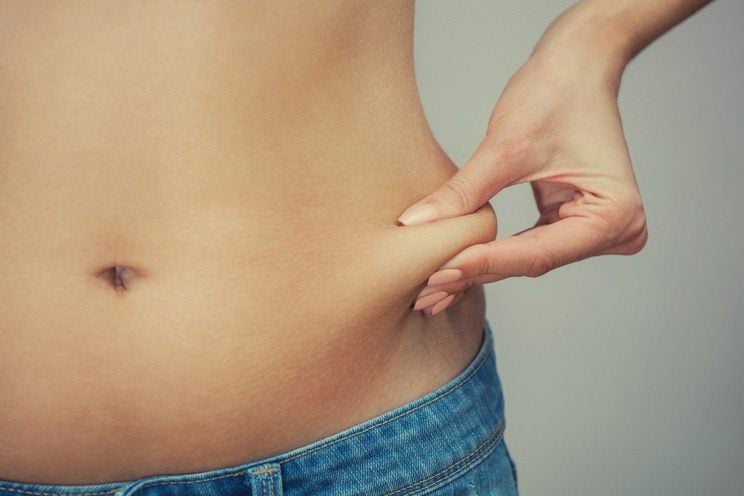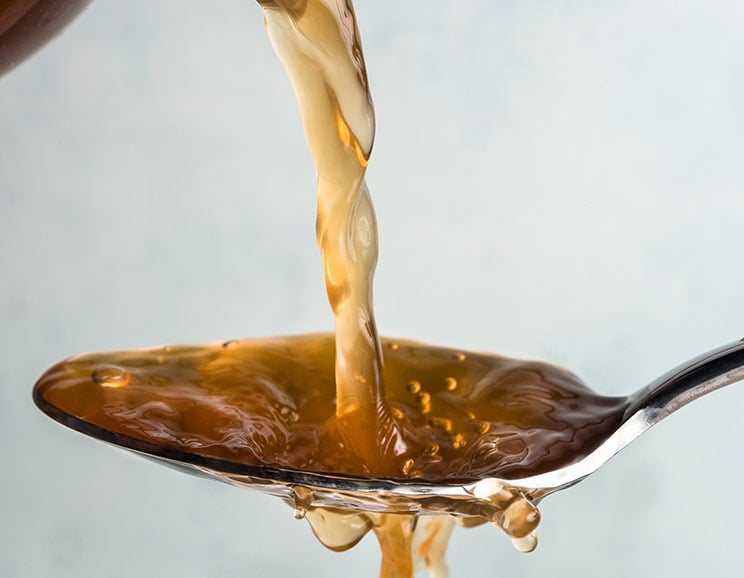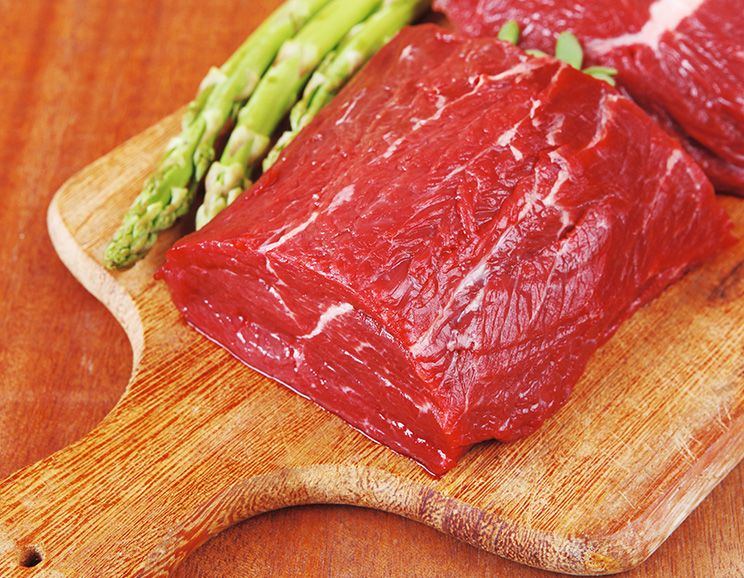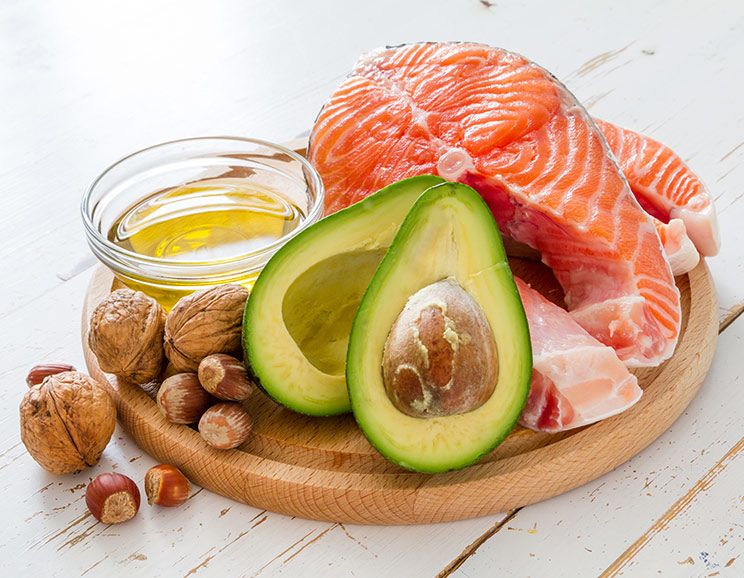Are you slow to lose weight, even though you work out regularly? Here are a few sneaky things you might be doing that are inadvertently slowing your metabolism — and how to correct them.
You’re eating right.
Sticking to healthy real foods just like our Paleo ancestors.
Do you struggle with bloating, gas, constipation, or other digestive issues? We’ve created a FREE guide to healing your gut naturally.
Click here to get your FREE copy of our Digestion Guide!
And you’re working out, too. Running, lifting weights, doing yoga or CrossFit. Whatever your thing is, you show up at least a few times a week.
Quick question: Why aren’t those last few pounds coming off?
Your metabolism should be humming like a race car engine. But it feels more like a horse-drawn carriage – too sluggish to get you as lean as you want to be.
Some of us are doing this to ourselves without even realizing it. The way we eat and live slows down our metabolism and makes it nearly impossible to shed those last few pounds.
Keep reading to see why… and how to fix it.
Exercise Boosts Your Metabolism, but It Might Not Be Enough
You’ve probably heard how exercising boosts your metabolism.
It’s one of the first things doctors and nutritionists recommend if you’re trying to lose weight. Just find more ways to move around. Get active.
Exercise affects your metabolism by a process called exercise-associated thermogenesis (1). Physical activity puts higher energy demands on your body than staying still. Some types of exercise do this better than others, but all of them beat a sedentary lifestyle.
Your metabolism is more complicated than you might realize. Your age, gender, and other factors outside your control all affect your metabolic rate (2). But getting physically active is under your control. That’s why so many people looking to increase their metabolism (and lose weight) start there.
Exercise is a great start…
But it might not be enough to get you as lean as you’d like. There are other factors at play.
Speeding up a Slow Metabolism
Exercise will ramp up your metabolism much better than relaxing on the couch. But there are other factors under your control – things you might not realize you’re doing – that play a part.
Once you identify them, you can make a few tweaks to your Paleo lifestyle to bump up your metabolism and burn those last few pounds.
So let’s start there. Here are five sneaky things that might be disrupting your metabolism right now:
1. You Don’t Eat Enough Calories
Yes, you read that right.
Wouldn’t you want to eat less if your metabolism is sluggish?
That’s the natural reaction. If you have a few pounds to lose, it’s easy to assume they’ll eventually come off… as long as you cut your calories enough.
But if there’s anything our bodies do well, it’s adapt. Our bodies are constantly working to maintain an energy balance between what’s burned and what’s consumed. [tweet_quote] If you’re working hard and getting a lot of exercise, consider adding more starchy carbs and healthy fats to keep your metabolism humming. [/tweet_quote]
When you try to lose weight, you throw that balance out of whack. Eating way fewer calories than before – not enough to meet your body’s energy demands – causes your body to respond by lowering your resting metabolic rate (how many calories you burn just to stay alive) (3).
It sounds counterintuitive, but drastic calorie restriction can slow or even reverse weight loss. You get caught up in a cycle where you eat way too little, your metabolism adjusts, and you try eating even less to overcome it. Then you wonder why you’re starving all the time but can’t lose weight!
If you’re eating the right foods, deliberate calorie restriction usually isn’t necessary. And it’s just as easy to undereat on the Paleo diet (especially if you’re a beginner) because the foods are so much lower in calories, but higher in nutrients, than processed foods.
Maybe it’s time to take a step back and find out how much you’re really eating. Track your calorie intake for a few days if you have do – the results can be eye-opening. If you’re working hard and getting a lot of exercise, consider adding more starchy carbs and healthy fats to keep your metabolism humming.
2. You Don’t Eat Enough Protein

You might be eating enough calories, but your ratio of fats, protein, and carbohydrates could be throwing a wrench in your metabolism.
The issue?
Not enough protein. [tweet_quote] Not all calories are created equal, despite what mainstream nutritionists try to tell us. [/tweet_quote]
Eating carbohydrates creates much different effects in the body than eating protein. The wrong kind of carbs – grains, processed carbs, sugars – spike your insulin levels, leading to inflammation, diabetes, obesity, and many other health issues (4). Eating protein has a much different effect: no huge insulin spikes, just a sustained energy source that keeps you feeling full for a long time (5).
One study compared two groups of volunteers who stayed at a hospital for 12 weeks. The researchers deliberately overfed both groups, but their diets were different. One group followed a low-protein diet, only getting five percent of their calories from that macronutrient. The other group got 25 percent of their calories from protein. The groups ate the same amount of calories. The only difference was the source: carbs or protein.
What happened?
The low-protein group lost about 1.5 pounds of muscle and gained 7.5 pounds of fat. But the high-protein group gained over six pounds of muscle. They did gain fat because they were being overfed. But they gained significantly less fat than the low-protein group (6).
Storing less fat and gaining more muscle is a recipe for a faster metabolism. Eating plenty of protein makes that possible. Also, eating protein stimulates thermogenesis more than carbs or fat (7).
If you can’t lose those last few pounds, maybe you aren’t getting enough protein. Try to have a high-quality source of protein – like meat or eggs – at every meal. Eaten in moderation, high-protein nuts and seeds (walnuts, pecans, almonds, pumpkin seeds, etc.) make great snacks, too.
3. Your Workouts Aren’t Intense Enough

Working out is a great way to boost your metabolic rates. That isn’t the issue. The issue is how some of us work out.
Fitness enthusiasts will argue all day about which type of exercise is best to kick-start the metabolism and drive weight loss…
But there’s no reason to get sucked into that debate.
Strength training – whether it’s with weights or your own body weight – has been shown to boost metabolic rates by building lean muscle mass, making the sympathetic nervous system more active, and increasing insulin sensitivity (8).
(Read: 10 Effective HIIT Workouts)
Cardio works, too. Studies have found a connection between regular cardio exercise and an increase in resting metabolic rates (9). How? Researchers suspect it’s due to better insulin response and blood sugar control.
So you don’t have to choose between resistance training and cardio…
But you can make them more effective by cranking up the intensity.
It all comes down to excess post-exercise oxygen consumption, known by fitness types as the “afterburn effect.” This is the limited period of time when your body expends extra energy after you exercise.
More intense exercise regimens produce a greater EPOC effect (10). Short bursts of high intensity effort, followed by brief rest periods, will help you get more metabolic “bang for your buck” than steady-state activities like jogging.
Take a look into sprinting, interval training, and other HIIT-style workouts. They might be just what you need to stoke your metabolism.
4. You Don’t Drink Green Tea

Did you know that drinking green tea speeds up your metabolism?
It’s true.
It’s actually one of the few foods or drinks that can help. Green tea contains antioxidants called “catechins.” These are thermogenic compounds that affect your metabolism (11).
One study divided healthy men into three groups and gave one group green tea supplements which contained catechins. The group given the green tea extract burned about 4 percent more calories than the placebo group, as well as the group who got straight caffeine (12). The supplements were a relatively low dose, too – nothing more than you’d get from drinking a few cups of green tea a day.
Four percent more calories might not sound like a huge difference. But if you’re looking to lose a few pounds, it could be the tipping point between losing weight or maintaining it. It’s definitely worth a shot!
5. Your Gut Is Unhealthy
More and more evidence is coming out revealing gut bacteria’s incredible impact on our overall health. These bacteria, which outnumber all of the cells in your entire body ten to one, affect everything from how we store fat and handle blood sugar, to how the hormones regulating our appetite function.
An imbalance here – even early in life – can have serious consequences months and years later. A study published in The American Journal of Clinical Nutrition found that differences in gut bacteria in infants let researchers accurately predict whether they’d be overweight or obese when the infants grew up (13). [tweet_quote] Leaner people have a greater variety of gut bacteria. [/tweet_quote]
If your gut bacteria are imbalanced, it could very well explain why your metabolism is sluggish. And too many bad bacteria can throw your hunger signals out of control, making it practically impossible to lose those last few pounds.
Leaner people have a greater variety of gut bacteria. One study, comparing sets of twins who were either both lean or both obese, found that the leaner twins’ bacteria profile had many more diverse species than the twins who were overweight (14).
(Read: 7 Signs Your Gut Bacteria Are Out of Whack)
Look out for the tell-tale signs of an unhealthy gut. Do you feel hungry all the time? Dealing with chronic digestion issues? Fatigued or even depressed? It might be time to take action.
Start supplementing with probiotics (healthy bacteria) and incorporating more healthy fermented foods – like sauerkraut – into your diet. Healing your gut could be a big step in increasing your metabolism.
Your Turn
Physical activity is a great way to increase your metabolism…
But you might need to make a few more adjustments before those last few pounds come off.
Your metabolism isn’t entirely under your control. Following the tips above, however, will help make yours as efficient as possible.
And remember the fundamentals! If your diet’s poor, or if you haven’t been getting enough sleep or managing your stress, start there. Putting those pillars in place will get you 90 percent of the way there. Then you can worry about the final tweaks to lean out as much as you want.
Have you ever tried to speed up your metabolism? How? Do you think it worked? Leave a comment below and share your experience!
(Read This Next: 9 Incredible Metabolism-Boosting Foods)



 Hearty Hungarian Goulash
Hearty Hungarian Goulash









Show Comments